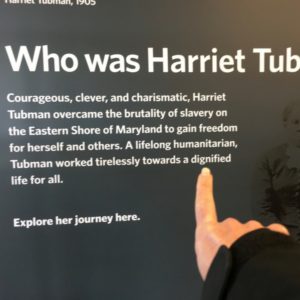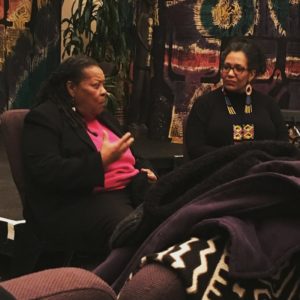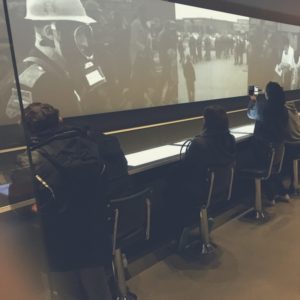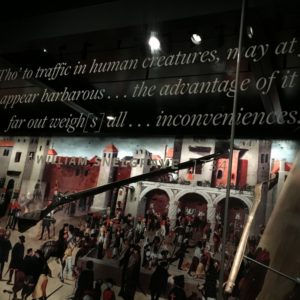Thirty-five women from fifteen states, with a joint online reach of over ten million people, participated in a five day journey through our nation’s past. We journeyed to places where women sacrificially pushed for social change and tirelessly advocated for human dignity of all people. We focused on power-house women like Elizabeth Stanton and Lucretia Mott, organizers of the first women’s rights convention; Harriet Tubman, the underground railroad’s “best known conductor”; and Ruby Sales, a prominent Civil Rights activist. We discussed our shared history the importance to advocate for justice for all people.


On this trip I found myself asking the question, “How do we choose to tell stories—what events do we leave out and what do we include, and who is influenced by those choices?” My own life and the lives of thousands around me have been shaped by the stories we tell each generation. My mind continued to go back to Deuteronomy’s instructions to remember the past—especially God’s deeds in the past—to motivate our actions in the present. How well am I actively remembering and teaching others the ways God has tirelessly pursued a relationship with humanity?
I am a well-traveled, educated, white female, in a Christian seminary. I am a long way from my suffragette sisters who were denied property rights, legal rights over their own children, and financial independence. And yet, it is only because they spoke truth and persisted through opposition that I can be where I am today. As little as 200 years ago a few bold women, with few rights of their own, honestly addressed the state of affairs in society and boldly stepped into the public sphere to advocate for enslaved people. In fighting for the rights of others, the women realized they too deserved the right to be considered fully human. Their path was not easy, and the fight was not quickly won.
As a Bible scholar, I am drawn to the biblical truths that motivate such bold actions, and I find myself revisiting the following themes:
- The Genesis creation narratives describe the creation of humans in God’s image. Men and women, yes, but also people of all colors. If we take the table of nations from Genesis 10 seriously, then we recognize the interconnectedness of all ethnicities, nationalities, and diversities.
- Deuteronomy 10 summarizes the thing God desires from his people: to love God and to obey God’s teachings. This is detailed in the law code, and the law code repeatedly instructs God’s people to care for the widow, orphan, poor, and strangers. This requires a mindful self-restraint of our own instincts to hoard wealth and also a determined mindset to act with inconvenient generosity.
- The prophets spoke profound words to leadership who allowed power, privilege, and greed to shape social action. They repeatedly pointed to God’s persistent covenant love for God’s people and called God’s people to respond, not with “religious” accoutrements, but with humility, justice, and love.
- The incarnational love of God. Jesus is the ultimate example of one who relinquished privileged to live among people who had not earned his sacrifice. His sacrificial love restored the dignity of all people.


The journey I took with these impressive women from around the USA forced us to realize that the fight to honor the God-likeness in women and in people of color is not over. Progress has been made but injustices abound. Are we holding ourselves accountable to see, acknowledge, and act? These journeys are valuable reminders of our history—the good and the bad parts of the story. Taking time to pause and honestly reflect on the past allows us to see God’s continued use of people as instruments for his just and right-relatedness structured kingdom here on earth. Our choice is whether or not to participate in God’s greater story and to the building of his kingdom. Within the course of history our lives are not the completion of all things but are joint contributions to God’s goals.
You may ask where we go from here. I will respond with what I have been telling myself to do. Be determined to be a voice for the voiceless and a fighter for dignity for all people, not just those who look like you, or who share a similar gender, ethnicity, or socio-economic background.
Keep going back to the biblical narrative of a people created of the same essence and prevent the rot of the soul that permits us to commodify others. Be willing to use self-restraint and thus care for the marginalized. And actively pursue the missional calling to embody incarnational love within the communities around us.
